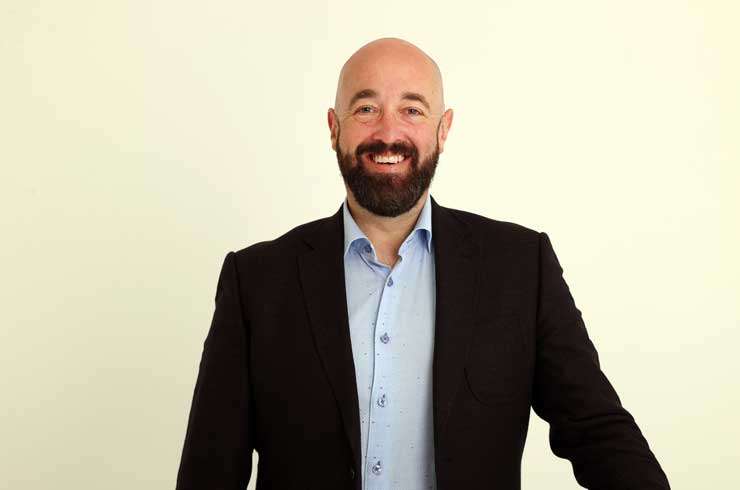ANALYSIS: Maybe you've just decided to start saving for a house or have been saving for a while. Whichever it is, you will want to know how to take the first step towards home ownership. Here are the fundamentals of what you need to know.
Getting a mortgage comes down to two things. Your income and your deposit. In other words, do you have enough income to pay for your future mortgage? And do you have enough savings to meet the bank criteria?
It seems intuitive to start with your deposit because there is such a clear line in the sand. You can't buy a house if you don't have a certain percentage of the purchase price as a deposit. For most people, the minimum deposit is 10%. A 20% deposit makes getting a mortgage easier - you are a safer bet for the banks - but don't write off home ownership if you only have 10%. Even a 5% deposit is possible if you meet the Kāinga Ora First Home Loan criteria.
But if you're considering buying a home, my advice is to start by reviewing your income. Your household income (and expenses) will dictate how much you can borrow from the bank, which will dictate how much deposit you need.
Start your property search
Therefore, before anything else, the first thing to do is to get your budget in order. Know exactly how much has come in and gone out of your account over the past three months. The bank will take your spending into account in your application. Make sure you know what you're spending your money on.
It doesn't matter where you are on your home-buying journey; checking your budget is a good idea. If you're starting out, controlling your spending will mean your deposit grows faster. If you're almost ready to apply, a good budget will mean you can borrow more. Removing a $10,000 credit card limit can increase your mortgage affordability by $40,000. Reducing your grocery spend by $50 per week can increase your lending ability by $30,000. These small adjustments can quickly add up to a significantly different house.
Once you have your budget in order, it's worth looking at your secondary debt, such as credit cards and hire purchases. Unless you have the level of income that allows you to stroll into any bank and ask for the money you want, it's worth cancelling all these debts. The credit card limit, not the balance of your credit card, affects how much you can borrow for a mortgage. Cancel any unused cards and try to remove all cards, if possible. The meagre amount of loyalty points you get each month isn't worth the effect on your mortgage affordability.

Mortgage Lab founder Rupert Gough: If your application is declined, always ask the reason why. Photo / Fiona Goodall
Now that you have your income and spending under control, it's time to know if you're entitled to any additional help from Kāinga Ora. Don't automatically assume you're not; check the criteria for each scheme carefully. Single parents, for example, can have earned up to $150,000 in the last 12 months to qualify for the First Home Loan. This would mean they only require a 5% deposit to purchase a house. I suspect thousands of people across New Zealand qualify for one of the Kāinga Ora schemes that could get them into a house and don't realise it. These potential home buyers will be scrambling together a 10% or 20% deposit when they could be in their home now.
While researching government benefits, get to know common terms in the mortgage and property industry. The most common terms are Loan to Value Ratios, servicing rates (also known as stress-test rates) and the difference between fixed versus floating.
Finally, it's time to find out how much money you can borrow. You can chat to your bank or talk to an adviser but knowing what you can borrow is the milestone you want to pass before you start looking at properties available on the market.
There are a couple of things to keep in mind with a mortgage application:
A "no" at one bank isn't a "no" at all banks. Banks have different criteria which means some are vastly more conservative than others. Find out which bank has the best policy for your financial situation.
A "no" at all the big banks isn't a "no" at all lenders. A handful of second-tier lenders charge as little as 0.5% more than the big banks and may have slightly easier lending policies.
If a lender declines you, always ask the reason. There is always a specific policy that hasn't been met and sometimes it can be as simple as they don't have enough money to lend out this week. If you know why you were declined, you know what it will take to fix it.
Nothing is stopping you from applying with multiple lenders, but it may mean they brush your application away more quickly. If a bank can see a small issue with your application and they are the only lender you are talking to, they may work with you to approve the application. If they know they are one of many lenders you are working with, chances are they will decline the application and move on to the next one. Go to the best lender first and approach others if required to after that.
- Rupert Gough is the founder and CEO of Mortgage Lab and author of The Successful First Home Buyer.






































































